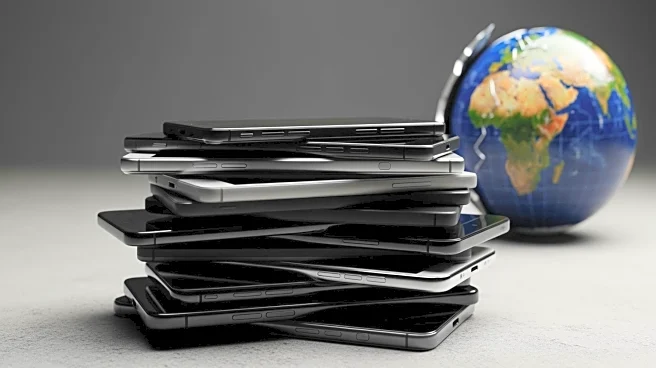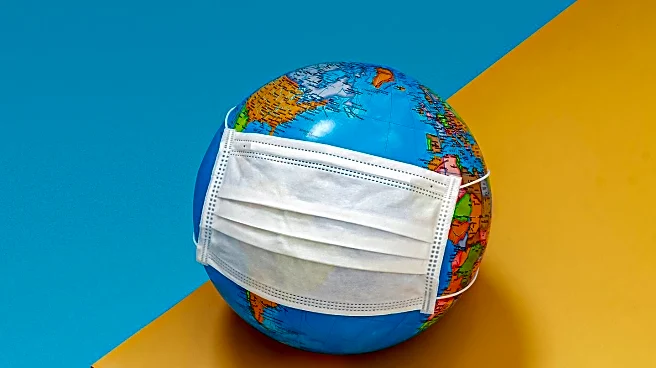What's Happening?
A new report by the Basel Action Network (BAN) has revealed that certain US brokers are allegedly involved in exporting electronic waste (e-waste) to developing countries, contravening international regulations. The report, titled 'Brokers of Shame: The New
Tsunami of American e-Waste Exports to Asia,' highlights the ongoing trade of e-waste to countries like Malaysia, Indonesia, Thailand, the Philippines, and the United Arab Emirates. These nations have banned such imports under the Basel Convention, which the US has not ratified. BAN's findings, based on trade data and GPS tracking, suggest that approximately 2,000 shipping containers filled with US e-waste are exported monthly to these countries. The report indicates that e-waste is often misdeclared as 'commodity materials' to evade detection and tariffs.
Why It's Important?
The export of e-waste to developing countries poses significant environmental and health risks, as these nations often lack the infrastructure to manage such waste safely. The practice contributes to pollution and exposes workers to toxic substances like lead and mercury. The report underscores the need for stricter enforcement of international waste management laws and highlights the US's unique position as the only industrialized nation not to ratify the Basel Convention. This situation raises ethical concerns about the responsibility of developed countries to manage their waste and the impact on global environmental justice.
What's Next?
The report may prompt calls for the US to ratify the Basel Convention and strengthen domestic regulations on e-waste management. Environmental groups and policymakers might push for increased transparency and accountability in the e-waste trade. There could also be international pressure on the US to align with global standards to prevent further environmental degradation in developing countries.
Beyond the Headlines
The issue of e-waste exportation highlights broader challenges in global waste management and the ethical implications of outsourcing environmental harm. It raises questions about the role of consumer electronics companies in ensuring responsible disposal of their products and the need for a circular economy approach to reduce waste generation.
















